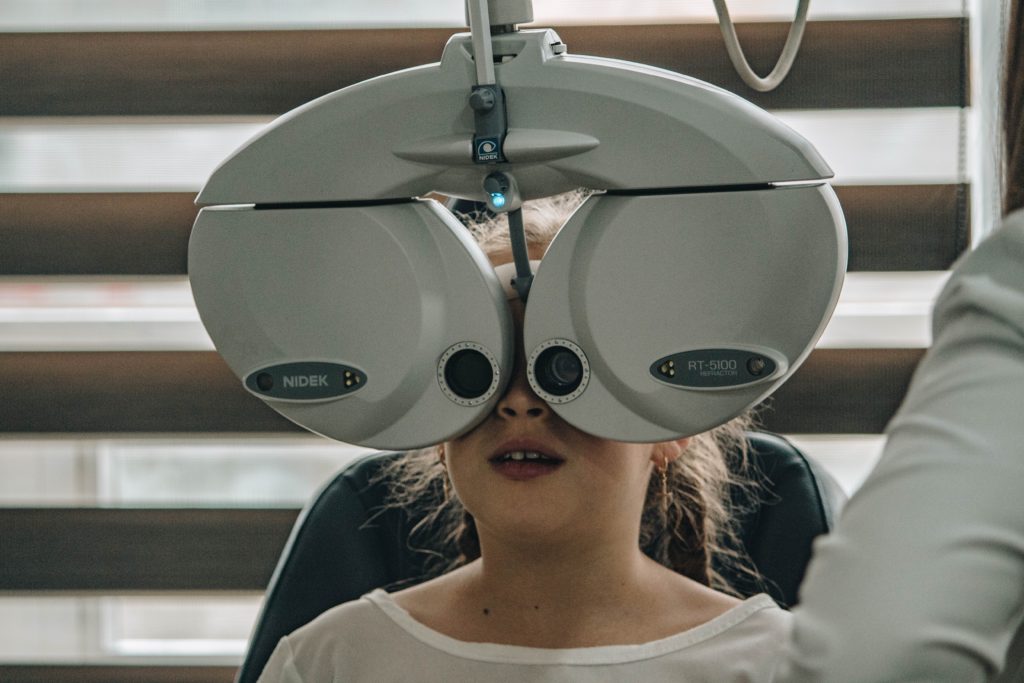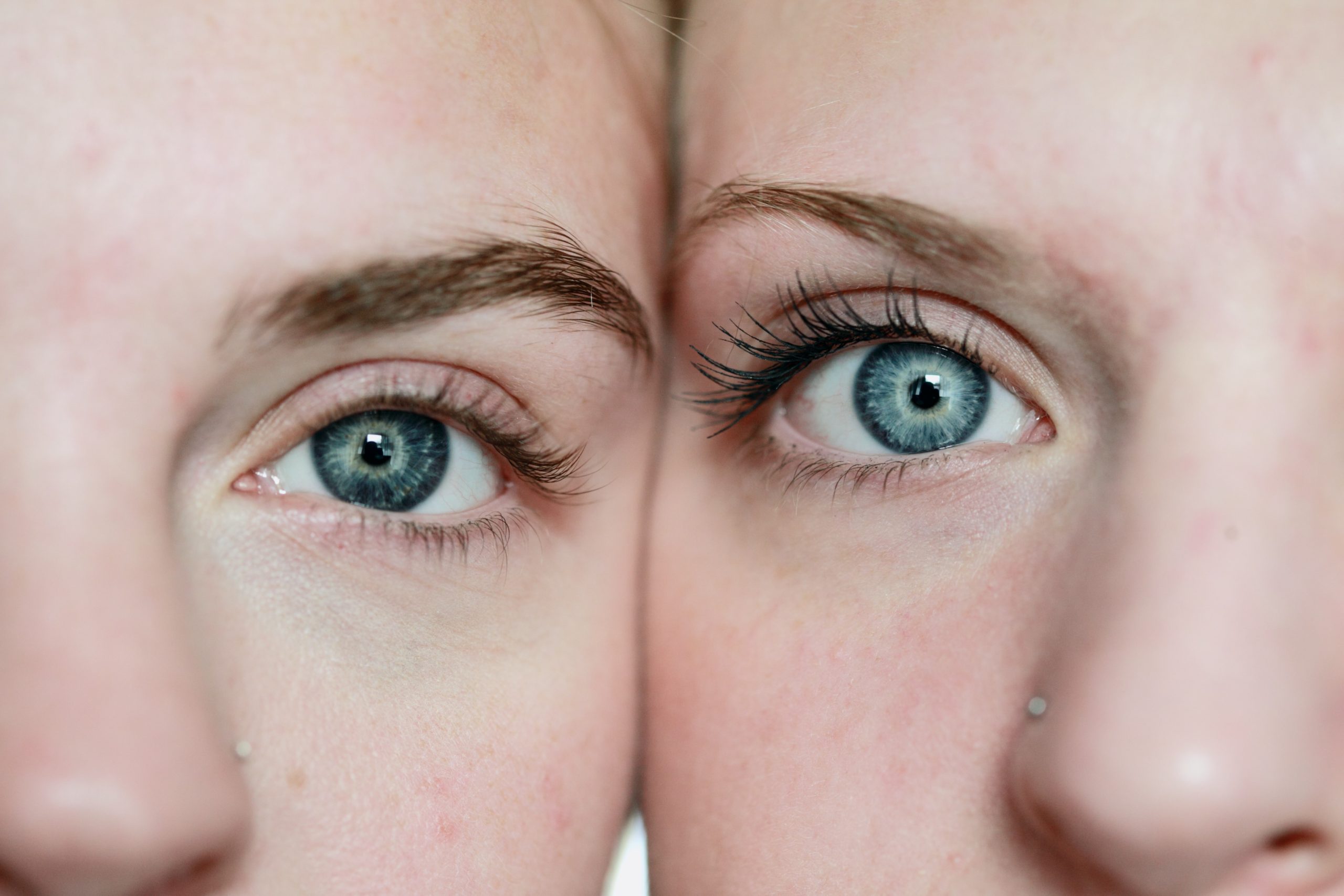Your eyes are the windows to your soul.
Good vision helps you perform well—at home, at work, or behind the wheel.
But did you know that they also hold clues about your health?
In fact, eye doctors are often the first to notice serious diseases—including brain tumors, hypertension and diabetes—by examining the condition of the blood vessels in your retina.
That’s why it is important to get your eyes checked as often as your health care provider recommends it, or if you have any new vision problems.
A regular eye exam is the best way to protect your eyesight – and an easy precaution to take.
Just as it is important to keep your body healthy, you also need to keep your eyes healthy.
There are things you can do to help keep your eyes healthy and make sure you are seeing your best.

Get Your Eyes Checked Right
A sight test in a store that sells eyeglasses is not the same as an eye exam with an optometrist.
Using automated equipment doesn’t provide the full picture of your eyes’ health, including muscle coordination, alignment or lens irregularities.
Spotting eye diseases like glaucoma is quite challenging.
Only an eye specialist will be able to do so appropriately using the required knowledge, experience, tools and techniques.
Experts recommend having a comprehensive eye exam at least once every two years.
When having your vision tested, relax and blink often.
If you don’t, the smooth tear film on the surface of your eye starts to break up, making it more difficult for you to tell which lens is clearest.

Eat a Healthy, Balanced Diet
Good eye health starts with the food on your plate.
As part of your healthy diet, choose foods rich in antioxidants, like Vitamins A and C; foods like leafy, green vegetables and fish.
Many foods – especially fatty fish, such as salmon – contain essential omega-3 fatty acids that are important to the health of the macula, the part of the eye responsible for central vision.
An inadequate intake of antioxidants, consumption of alcohol or saturated fats may create free-radical reactions that can harm the macula – the central part of the retina.
High-fat diets can also cause deposits that constrict blood flow in the arteries.
The eyes are especially sensitive to this, given the small size of the blood vessels that feed them.

Maintain A Healthy Weight
Being overweight or having obesity increases your risk of developing diabetes.
Having diabetes puts you at higher risk of getting diabetic retinopathy or glaucoma.

Quit Smoking
Smoking exposes your eyes to high levels of oxidative stress.
While the connection has not been clearly identified, it is known that smoking increases your risk for a variety of health conditions affecting the eye.
If you’ve tried to kick the habit before only to start again, keep at it.
The more times you try to quit, the more likely you are to succeed.
Ask your doctor for help.

Wear Sunglasses
The right pair of shades will help protect your eyes from the sun’s ultraviolet (UV) rays.
Too much UV exposure boosts your chances of cataracts and macular degeneration.
Choose a pair that blocks 99% to 100% of UVA and UVB rays.
Wraparound lenses help protect your eyes from the side.
Polarized lenses reduce glare while you drive, but don’t necessarily offer added protection.
If you wear contact lenses, some offer UV protection.
It’s still a good idea to wear sunglasses for an extra layer.

Get A Good Night’s Sleep
You’ll feel the difference when you get the sleep you need.
You’ll look great, you’ll perform at home or work—and good rest will support the health of your eyes.

Wash Your Hands
Keeping your hands clean is so important when it comes to your eyes, especially if you’re a contact lens wearer.
Before you touch your eye—and before you put in or remove a contact lens—wash your hands with a mild soap and dry with a lint-free towel.
Some germs and bacteria that come from your hands can cause eye infections, like bacterial conjunctivitis (pink eye).
When you touch your eye, whatever is on your fingers goes right onto your eye’s surface.
This is one way that people catch colds—rubbing their eyes while they have cold virus germs on their hands.

Avoid Excessive Exposure to Computer Screens
In addition to causing neck, back and shoulder pain, staring too long at a computer/phone screen can affect your eye health severely.
Some of the eye problems you can get from excessive exposure to computer/phone screens include, eyestrain, dry eyes, Blurry vision, and Long distance focus issues.
Some protective measures include
Updating your glasses or contacts prescription for screen exposure
Seeking proper medical care in case of prolonged eyestrain and considering computer glasses for computer use
Choosing a comfortable supportive chair and positioning it where your feet lie flat on the floor
Blinking more if your eyes dry up
Following 20-20-20 rule where you rest your eyes every 20 minutes by looking 20 feet away for 20 seconds continuously
Taking 15-minutes breaks every 2 hours and getting up from your chair is also recommended.
Disclaimer:
The content provided in this blog is for informational purposes only. The owner of this blog makes no representations as to the accuracy or the completeness of any information of this site or found by following any link on this site. The owner will not be liable for any errors or omissions in this information nor for the availability of this information. The owner will not be liable for any losses, injuries or any damages from the display or use of this information.



